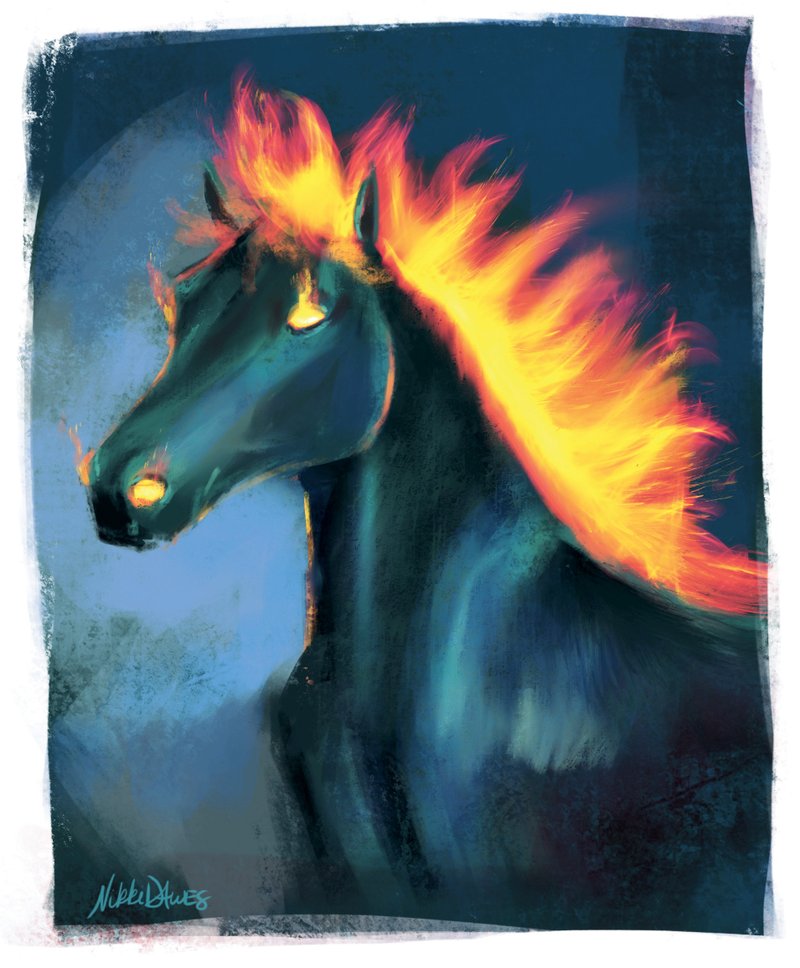The idea for this column started with a friend who announced one day at work that the time for tomfoolery was over.
No one took him at all seriously; tomfoolery is how we roll. But it made me wonder about the origin of "tomfoolery" and other words.
Tomfoolery is silly behavior. "Tom" was simply a generic male name, used for centuries. If someone took a long time to recount a tale, he might be called "Tom Long." And if he acted like a buffoon, he was called "Tom Fool."
The word "foolery" was already in the language by the 16th century. By the 19th century, the two words joined forces to become "tomfoolery."
Gossamer. I always associated this word with something light and delicate, such as meringue or a sheer fabric. I just learned that it's the substance from which spiders form their cobwebs, which makes it a little less enchanting.
Gossamer came from a time of year in early Britain called goose-summer, a mild fall that's also called St. Martin's summer or Indian summer. Apparently this is when people eat geese and when spiders weave their webs of gossamer.
Remember that this was before the internet, so time-wasting options were fewer.
Pandemonium. This is a wonderful word introduced by poet John Milton, with whose works I struggled in college.
In the 1600s, Milton wrote the epic (as in endless) poem Paradise Lost. Pandemonium was Milton's name for the capital of the underworld.
Now it has a lowercase "p" and has come to mean utter chaos. The word demon is right in the middle. I love words that sound like what they are.
Magazine. This word started out meaning a place to store things, particularly ammunition.
But in 1731, a periodical called Gentleman's Magazine started production in London. The publication included essays, biographies, illustrations, poetry, news reports and historical passages. It adapted the notion of being a storehouse of information, and a meaning was born.
Quarantine. Today, this means being kept away from others to prevent a disease from spreading. A child with chickenpox can be quarantined from family and friends.
But the word originated in the 14th century during the plague. It comes from the Italian phrase "quaranta giorni," which means "40 days.''
Ships reaching Venice from ports where people were plagued with the plague were forced to drop anchor for 40 days before they could disembark.
Nightmare. This has nothing to do with female horses, although I suppose that some people might be haunted by nefarious mares in their dreams.
"Nightmare" originally was the name for an evil force that would visit people while they slept and make them feel as if they were being suffocated. The meaning evolved into any frightening dream.
Eavesdrop. Today, we overwhelmingly hear this as the act of listening in on a private conversation.
"Eavesdrop" originally was the water that fell from the eaves, or hanging edge, of a house's roof. By the 15th century, this became a convenient spot for people to hear what was being said inside a house.
As usual, it's location, location, location.
Trivia. I live for trivia, as anyone who reads this column might know. The word is from ancient Rome, where a "trivium" was where three roads intersected. When people ran into each other here, they would chat about not-very-important things, "trivialis.''
The modern version of trivium might be the office water cooler. But "trivia" just sounds better than "water-cooleria.''
Fiasco. I would love this word even if I had never been to Venice.
The celebrated glass blowers of Venice sometimes messed up a bit on their art. When a piece was flawed, the artists made it into a plain old bottle, or flask, known in Italian as "fiasco."
Eventually, fiasco came to mean an epic failure.
Italian words that begin with "fi" are often translated into English words beginning with "fl."
Etiquette. Today, this is the set of rules we follow in social settings. Miss Manners teaches it.
The origin was similar. But the name came from an Old French word for "ticket.''
At first, an etiquette was a set of written instructions for how soldiers were to behave in lodgings. Later, the instructions on how to behave correctly at court were written on small cards. (In Italian, it was "etichetta," and in Spanish it was "etiqueta."
Calendar. A calendar in Latin, a "calendarium," was a ledger, as an accountant might have. The Romans called the first day of the month "calends." The first of the month was when bills were due, and the calendariums noted the payments.
Over time, the calendar came to mark everything from St. Swithin's Day (July 15) to National Grammar Day (March 4).
Sources: www.randomhouse.com, users.tinyonline.co.uk/gswithenbank, Oxford dictionaries, www.etymonline.com, m-w.com, www.cdc.gov, dictionary.com, dictionary.reference.com, Gentleman's Magazine, www.wordorigins.org, www.calendar-origins.com.
Reach Bernadette at
bkwordmonger@gmail.com
ActiveStyle on 11/06/2017
